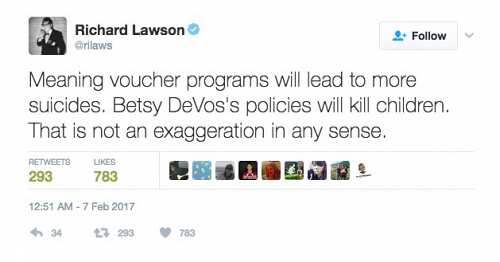Poor Bernie, he went and opened his mouth and thusly removed all doubt that he has no grasp of economics. Such ignorance from an internet troll might be expected and can be amusing in the same way that a child’s explanation of something can be so. But when such breathtakingly inane statements emanate from a candidate for President of the United States, well, what can one do but weep for the future. To what perplexing attempt at pontification do I refer? None other than this Dec 26 Tweet from @SenSanders: “You have families out there paying 6, 8, 10 percent on student debt but you can refinance your homes at 3 percent. What sense is that?”
Now most people would probably look at this statement and not find it particularly outrageous. We as a society have been conditioned to accept the notion that interest rates are arbitrarily set from time to time by some talking head in government. The assignment of these rates is apparently disconnected from any external factors. They are like lotto numbers plucked from the ball machine. We assume other lenders (banks, credit cards, etc) set their rates in a similar pattern.
In reality non-government rates are primarily market driven. That is, the relative difference in rates is market driven while the net value rests on the arbitrarily set Fed rates. Interest rates are not arbitrary digits, they are prices. They are the price people are wiling to pay to not wait. Interest rates are a reflection of supply, demand, and risk. The demand for loaned funds is indicative of high time preference, that is, preferring something now rather than later. The supply of loaned funds is indicative of a low time preference, that is, the willingness to forego consumption in the present and defer it into the future – for a price. To understand high time preference, ask yourself, do you prefer to buy that 72” OLED 4k TV today, or in a year after saving the funds yourself? Most of us prefer to have it today so that we can enjoy it immediately. The cost of that sooner than otherwise realized enjoyment is reflected in the interest rate we are willing to pay. If there are a lot of people willing to supply loaned funds, then the interest rate will be lower (supply goes up, price i.e. interest rate, goes down). If there are few people willing to supply loaned funds then the interest rate will be higher (supply goes down, price, i.e. interest rate goes up). It’s really not that complicated.
The only wrinkle with interest rates relative to regular money prices exchanged for tangible goods is that unlike exchanging cash for a hamburger (where both parties have something after the exchange), with the process of loaning/borrowing, only one party has the thing they desire in the beginning. The other party has a promise to deliver the other half of the bargain at some future date. The future is uncertain and there is always risk that someone may not do what they say, either deliberately or for reasons beyond anyone’s control. That uncertainty is also reflected in the interest rate. If there is a high chance the lender won’t get paid back then the interest rate will be quite high. But, if something can be offered to mitigate that risk, something tangible, like say a house or a car, then the lender can feel more assured that at least they will get some portion of the loaned funds back in the worst case. So that brings the rate back down.
Bernie, this is why loans backed by tangible collateral (like a home mortgage or equity line) have a lower interest rate than a student loan which has no collateral. A student loan is no different than credit card debt – it is unsecured. Now, look at the interest rate on your credit card (likely over 20%) and compare to the 6, 8, or 10% figure being cited – doesn’t look so bad now does it? These rates are so much lower than they otherwise would be because of government intervention in the student loan market.
Now some might say the banks should be willing to invest in such human capital, that a college degree will translate into a high paying job that allows them to pay it off. That can be true. That is why years ago before government involvement lenders did give out student loans, but only to the most academically worthy of students, those that clearly would succeed. But even so, possible future income is not collateral, the bank can’t take possession of the student himself and enslave him or her to get their money; they can take a house or car, they can’t take a person.
If Bernie wants to help students he should promote the idea of removing government involvement from higher education. Every sector the government subsidizes (healthcare, housing, education) has seen explosive price inflation. That is no coincidence. The patient can’t heal until you kill the disease.







